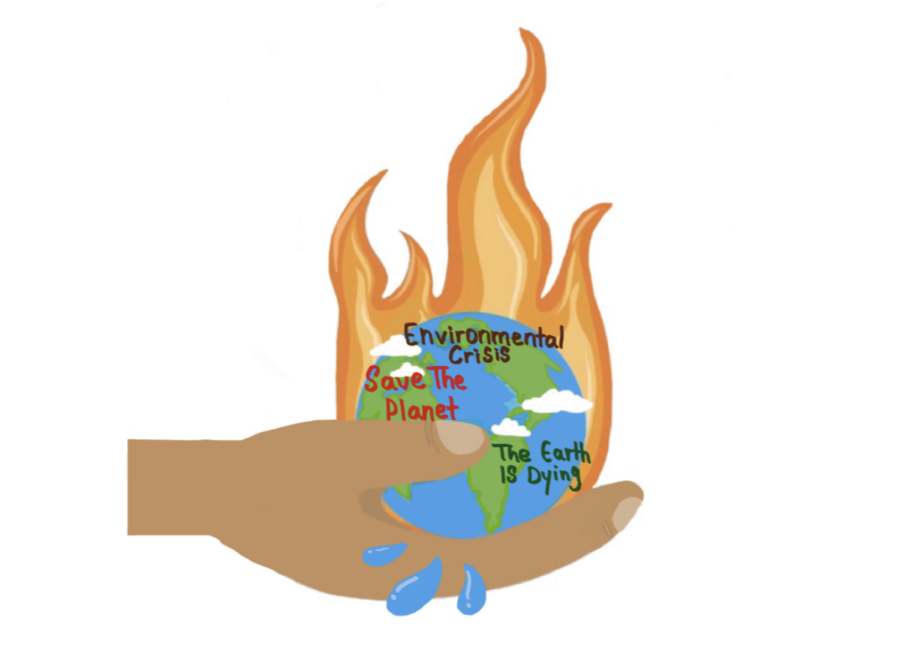Eco-anxiety Is a Step Forward to Saving the Environment
Fears that time is running out and the environment will collapse in the near future has spurred feelings of helplessness and desperation among young individuals. “I think there should be a lot more to be done to educate citizens on how you can take action in ways such as making public comments at city council meetings and just getting to know your representatives in general,” animal and environmental protection club president and senior Katherine Chang said.
Unprecedented snowfall in California and wildfires ravaging communities. As storms and droughts have reached extreme levels, global warming’s impact on natural disasters has become a focus of discussion and worry across society, according to NewsWeek.
Eco-anxiety is being generally perceived as a negative side effect of worrying about the environment, according to the National Library of Medicine. However, eco-anxiety should not be viewed negatively, but rather as a tool for increasing awareness and progress towards environmental action among younger generations.
“People often look down on people that exhibit eco-anxiety, and that overall does give environmentalists a bad reputation,” animal and environmental protection club president and senior Katherine Chang said. “But I think the overall cause of eco-anxiety is the hard truth that there are so many issues with our environment, and there’s not much time to be able to fix things.”
As natural disasters have grown in frequency and intensity, 75% of Americans express concern about the changing climate, which is double the percentage polled in 2017, according to the World Economic Forum. Younger generations have felt this negative outlook, with 83% of teenagers believing people have “failed to take care of the planet,” according to Science Direct.
“The class sometimes gets a lot of what we call doom and gloom,” AP Environmental Science and Living Earth teacher Courtney Moder said. “A lot of the environmental issues that we’re seeing in our world, unfortunately, they’re just very dark. We’re losing habitat loss, and where are these animals gonna live? We have climate change, and it’s increasing our temperatures, which is melting our sea ice, and then that’s gonna be another huge issue.”
However, witnessing and understanding the root of these environmental issues ultimately inspires the feeling for necessary change and encourages people to take a step further in their endeavors to support the environment, as cited by the National Library of Medicine.
“We as a society just overall need to be more conscious of our environmental impact that we’re making,” Chang said. “The people that are anxious about the environment are also the people that care about it and are more willing to step up. And so I’m not saying more people should be eco-anxious, but more people should be able to understand where it’s coming from.”
Rather than associating eco-anxiety with the negative connotations of the term anxiety, individuals should regard it as a tool to spread awareness of the dire state of the earth. It is important to acknowledge the media’s coverage of climate change and distressing environmental media coverage before using it as motivation to inspire a better environment.
Your donation will support the student journalists of Portola High School. Your contribution will allow us to purchase equipment and cover our annual website hosting costs.

Jana Malek is a staff writer for the Portola Pilot. She is excited to spend her final year running around with a camera behind deadline. When she's not...

Mary Lee is a Managing Editor for her third and final year on the Portola Pilot. While immersing herself in ambient pomodoro music or playing Korean music...




